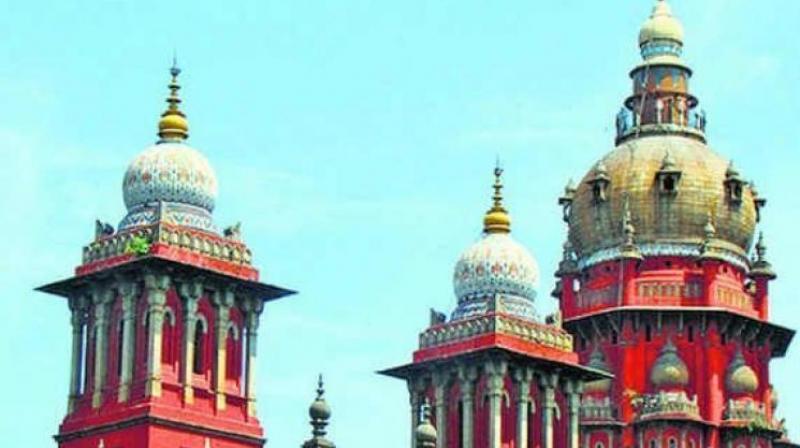Can’t bar candidates with learning disabilities: Madras high court
Bench said the Preamble of the PWD Act does not permit any deviation from the Act.

Chennai: The Madras high court has observed that candidates with learning disabilities or any other disability should not be barred from entering the field of medicine.
"The principles of the United Nations Convention on the Rights of Persons with Disabilities and Rights of Persons with Disabilities Act, 2016 (PWD Act) should be followed in their letter and spirit", said a division bench comprising Justices Pushpa Sathyanarayana and T. Krishnavalli.
The bench made the observations while referring to the recent amendment notified by the Medical Council of India, making the persons with 40 percent or more visual impairment ineligible for medical course.
Dealing with a case of a medical aspirant, who was denied seat on the ground that he was suffering from visual impairment to an extent of 90 %, the bench said the amendment would operate prospectively and cannot be given effect to retrospectively and directed the authorities to allot a seat to the petitioner.
While considering a question as to whether the 2019 amendment to the Medical Education Regulations suggested by the Expert committee was applicable to the case of the petitioner J.Vibin, the bench said in the light of the PWD Act and the United Nations Convention on the Rights of Persons with Disabilities, the recent guidelines of MCI were unfair, discriminatory and unlawful.
The United Nations Convention on the Rights of Persons with Disabilities, 2007was accepted and ratified by India by which it was mandatory to harmonise all its existing legislations in line with its provisions. Accordingly, the PWD Act was passed in 2016 and brought to force in 2017.
"The intention of the legislature was to move from a charity approach to a right based approach and safeguard the human rights of the Persons with Disabilities. As per the Act, any person with benchmark disability, i.e., minimum 40 % of a specified disability is entitled, as a matter of right, to avail the benefits under the PWD Act including 5 percent reservation in higher education", the bench added.
Bench said the Preamble of the PWD Act does not permit any deviation from the Act. While framing the guidelines, doctors with disabilities ought to have been considered. The competence of a doctor with disability cannot be assumed, as unless it was experienced one may not understand the same. If a person with visual impairment was already a doctor, it shall be possible for a blind person to be a doctor.
Dr.Y.G.Parameshvera of Karnataka was the first Indian blind doctor and practiced medicine and won several awards. It seems to be a difficult struggle for these blind men to achieve what they want. The petitioner is not the first blind doctor and he can learn from the experiences of others like him. Being blind need not destroy one's dreams", the bench added.
The bench said even most of the hospitals in the country were not disabled friendly. It was painful to note that no time allowance was given to persons with disabilities and they crack this tough competitive examination along with/on a par with others, the bench added.
Reproducing section 21 and 10 of the PWD Act, the bench said the MCI regulations denying reasonable accommodation was discriminatory. The MCI guidelines did not foresee the emotional impact of studying medicine with disabilities.
"The arbitrary sudden and unreasoned amendment to the notification is violative of Article 14 and 21 of the Constitution of India and also the doctrine of legitimate expectation. The subsequent amendment should not operate to the prejudice of the persons with disabilities, particularly, when the person (Vibin) had qualified and cleared the eligibility criteria", the bench added.
The bench said in the case on hand, the petitioner (Vibin) was given the benefit of joining the medical course in the ensuing academic year by the writ court and the same cannot be curtailed by any reason whatsoever, which was unsustainable in the eye of law and thrashing out his legitimate expectation.

